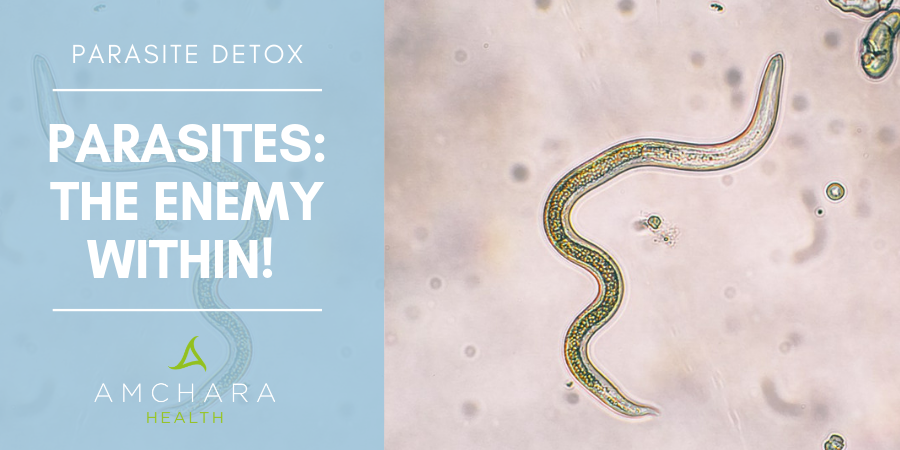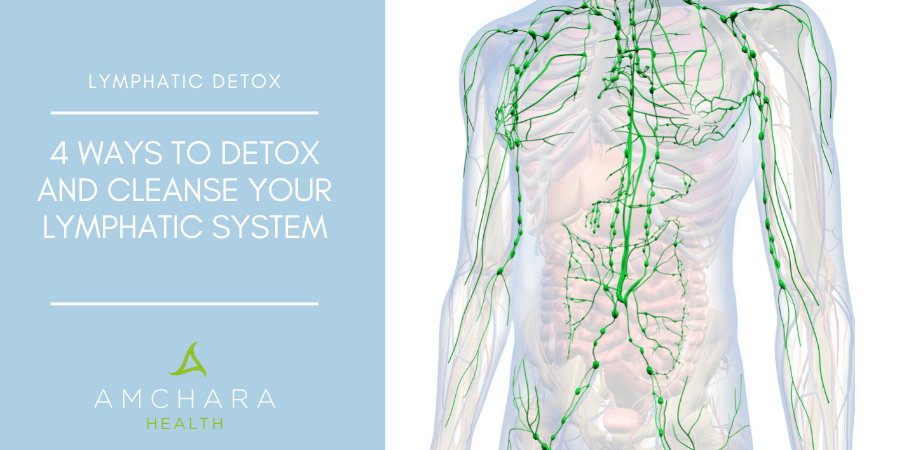During Earth’s history, humans have managed to acquire as many as 300 species of helminth worms and over 70 species of protozoa.
Although many of these are rare parasites, we still harbour about 90 fairly common species and a few of these are responsible for some of the most important diseases globally. (1)
Parasites can live within the body with no apparent symptoms or they can trigger a wide range of health problems causing considerable distress and discomfort.
For years parasite infections were only considered to be a problem if you were visiting far flung exotic locations, however nowadays we are discovering that you don’t need to leave home to pick up a parasite.
We always take an evidence-based approach and in this article we’ll look at parasites in more detail and investigate some natural parasite cleansing treatment options that have become more popular in recent years as well as how to get diagnosed.
We’re also going to examine ways to keep yourself free from parasites.
Table of Contents
What is a Parasite?
A parasite is a simple organism that lives in or on another animal or person, through which it obtains the nutrients it needs to live. Parasites either live off food ingested by the host (particularly sugar), or they might live off the body of the host.
Without a host, a parasite cannot live, grow and multiply.
For this reason, it rarely kills the host, but it can spread diseases, and some of these can be fatal.
They are commonly found in a range of people, from children to the elderly.
Parasites can deplete the body of essential nutrients, which may lead to organ problems and in very extreme cases, organ failure, but more typically they will cause gastroenteritis within a week of infestation, which usually requires treatment.
Types of Parasites
Parasites come in all shapes and sizes and can inhabit every tissue in the body.
Some are microscopic in size while others can be seen quite easily.
They can range from small intestinal stowaways, like the amoeba family, to the 15 feet long intestinal Cestoda, commonly known as a tapeworm.
According to The World Health Organization (WHO), parasites are among the six most harmful infective diseases in humans and parasitic infections outrank cancer as the number one killer in the world. (2)
These common organisms can be found everywhere in our environment, in the water we drink, the air we breathe and the food we eat.
The UK, together with Ireland, are two European countries where the most cases of Cryptosporidium and Giardia infections have been reported. (4)
It is believed that the presence of parasites in drinking water sources and the inefficiency of conventional water treatments at eradicating them may become a public health issue in the UK. (5)
The major parasite groups include: (3)
Protozoa
-
Giardia lamblia (also known as Giardia instestinalis)
-
Plasmodium (causes Malaria)
-
Toxoplasma gondii
-
Trypanosoma
-
Cryptosporidium
-
Blastocystis hominis
Amoeba
-
Entamoeba histolytica
-
Entamoeba coli
-
Iodamoeba bütschlii
-
Dientamoeba fragilis
-
Endolimax nana
-
Trichomonas vaginalis (TV)
Nematodes
-
Ascaris (roundworm)
-
Enterobiasis (pinworm)
-
Hookworm (roundworm)
-
Trichuris (whipworm)
-
Strongyloidiasis (threadworm)
Intestinal Cestoda
-
Tapeworms
Trematoda
-
Flukes and flatworms
Ten of the Most Common Parasites in Humans
1.Tapeworm – Taenia solium/saginate
Usually due to eating raw or under-cooked beef. The larvae are found in the muscles of cows. Once ingested the larvae use hooks to attach to the gut and grow, sometimes up to 5 metres in length (1)
Symptoms: nausea, vomiting, inflammation of the intestine, diarrhoea, weight loss, dizziness, fits, malnutrition.
2. Hookworm – Necator americanus
Symptoms: weakness, abdominal pain, nausea, diarrhoea. Causes chronic intestinal blood loss that results in anaemia.
3. Scabies mite – Sarcoptes scabiei var. hominis
Symptoms: itching, soreness, pus-filled nodules, skin irritation.
4. Roundworm – Ascaris lumbricoides
Symptoms: fever, tiredness, allergic rash, vomiting, diarrhoea, nerve problems, wheezing/coughing.
5. Flatworm blood fluke – Schistosoma mansoni
Symptoms: fever, aching, cough, diarrhoea, swollen glands, lethargy.
6. Pinworm – Enterobius vermicularis
Symptoms : irritation and scratching.
7. Wuchereria bancrofti
Symptoms: fever, chills, skin infections, painful lymph nodes, thickened skin, swelling.
8. Toxoplasma gondii
Symptoms: flu symptoms, fever, chills, fatigue, headache.
9. Giardia lamblia
Symptoms: diarrhoea, nausea, abdominal pain, weight loss, characteristic “rotten-egg”-tasting burps.
10. Entamoeba histolytica
Symptoms: abdominal pain, weight loss, weakness, diarrhoea, liver abscess.
Contributing Factors
Parasites come from a wide range of sources. One of the most common is picking up parasites from pets and other contributing factors include:
-
Travelling to countries where hygiene is poor
-
Eating and drinking contaminated water Giardia lamblia and Cryptosporidium are resistant to chorine
-
Reduced intestinal immunity
-
Low stomach acid
-
Low levels of intestinal probiotics
-
Contact with animals – parasites are carried in their saliva and fur
-
The use of immune suppressing drugs
-
Exposure to human faeces through sexual contact
-
Poor hygiene – not washing hands after visiting the toilet or handling animals
-
Not washing fruit and vegetables before eating
-
Eating raw fish
-
Eating contaminated food products in restaurants, shops and street vendors where sanitation is poor
Symptoms of a Parasitic Infection
Parasitic infections can produce a diverse range of symptoms including:
-
Constipation
-
Diarrhoea
-
Flatulence
-
Gas
-
Bloating
-
Headaches
-
Fatigue
-
Irritable bowel syndrome
-
Joint and muscle aches
-
Anaemia
-
Allergies
-
Nervousness
-
Sleep disturbances
-
Abdominal pain
-
Teeth grinding
-
Heartburn
-
Bloody stools
-
Anal itching
-
Weight loss
-
Increased appetite
-
Skin rashes
-
Itching
-
Lower back pain
-
Stomach cramps
-
Sugar cravings
-
Mental confusion
-
Dizziness
Checking for Parasites
If you have pets, it’s important to take them for regular veterinary checks and to give them regular worming medications.
In some parts of the world, it is standard practice for children to be regularly checked for parasites but in the UK and US parasite checks don’t take place unless you fall ill.
Top Ten Tips to Avoid Parasite Infestation
-
Always wash fruit and vegetables before eating
-
Wash hands frequently and thoroughly particularly:
-
after visiting the toilet
-
before preparing food
-
after changing a baby’s nappy
-
after working in the garden
-
after handling pets
-
-
Eat well cooked meats
-
Avoid ice or tap water where water quality is not known
-
Avoid raw foods and salads that have been rinsed in water where water quality is not known
-
Do not allow pets in your bedroom or on kitchen surfaces
-
Do not allow pets to lick your face or mouth
-
Use insect repellent
-
Take care when bathing in fresh water lakes or rivers
-
Consider colonic irrigation as a form of detoxification, which may help to reduce the number of parasites in the colon
Diagnosis
You can identify if you have a parasitic infection by taking a stool test.
Unfortunately stool samples from the GP are sometimes returned as normal even though symptoms persist.
Accurate detection of parasites requires sophisticated techniques and often needs three stool specimens instead of just one. This increases detection by around 30%.
Many nutritionists and naturopaths use private laboratories, which require the collection of stool samples over a number of days.
Natural Parasite Treatments
Dietary Advice
Try to include plenty of high fibre foods to encourage efficient elimination, whilst focusing on anti-parasitic foods to help kill off the parasites and cleanse the intestinal tract.
Foods to avoid:
Sugar and sugary foods – such as pastries cakes, biscuits and soft drinks. Parasites can utilise sugar as a food source.
Fresh fruit and dried fruit – contain lots of natural sugar which parasites can use as a food source
Fermented sausages and cured meats – such as ham and pepperoni
Sushi, pickled raw fish, smoked salmon
Red meat and fatty foods – which can be difficult to digest and slow down gut transit time
Coffee, tea and alcohol
Foods to include:
Garlic and onions – rich in natural sulphur and also anti-parasitic.
Fresh pineapple and papaya – rich in the natural protein digesting enzyme bromelain which may help to clear parasites such as tapeworms. Known as traditional remedies, especially in Mexico and Africa, for intestinal infections.
Pomegranate juice – thought to be especially effective for tapeworms.
Pumpkin seeds – traditionally used against tapeworms and roundworms. Grind one pound of seeds in a blender, add a little water to make a paste. This can be eaten for a parasite purge. Taking a tablespoon of castor oil 2-3 hours after eating the pumpkin paste aids the intestinal purge.
Spices – turmeric, cloves and cinnamon all have anti-parasitic properties.
Flaxseeds – these are high in soluble fibre.
Plenty of vegetables – these contain plenty of beneficial fibre.
Coconut oil – anti-microbial and also good for immune support.
Cabbage juice – promotes the formation of the protective mucus layer that lines and protects intestinal cells.
Beetroot and carrot juice – both are rich in beta-carotene, the pre-cursor to vitamin A, an important nutrient for the health of the intestinal lining which is thought to strengthen resistance to larvae.
Useful Supplements
Olive leaf extract
Found to work effectively to eradicate certain parasites from the body.
Colloidal Silver
Has anti-fungal, anti-bacterial and anti-parasitic properties.
Garlic
Has been found to be active against various parasites.
Grapefruit seed extract
Has anti-parasitic properties and offers a very effective way of ridding the intestines and body of parasites.
Cinnamon Bark
Anti-worm, helps to stop bleeding, able to expel intestinal worms. Helpful for aiding the production of gastric juices.
Marigold flower
Anti-protozoal, able to expel intestinal worms.
Glutamine
Supports healing of the gut lining.
Probiotic bacteria
Can help to repopulate the gut with beneficial bacteria, which may help to crowd out the parasites. Saccharomyces boulardii (a probiotic yeast) may be particularly useful for those with diarrhoea and in cases of Giardiasis. It reduces inflammation in the bowels, bulks out the stool, prevents pathogenic yeast overgrowth and improves localised immunity.
Fenugreek seeds
Traditionally used to fight parasites.
MSM
Prevents intestinal parasites hooking on to the intestinal wall.
Cats Claw concentrate
A tree bark from the Peruvian forest that is claimed to have anti-parasitic properties, also anti-fungal and anti-viral.
Chlorella
A blue-green algae rich in amino acids, vitamins and trace minerals – a good intestinal detoxifier.
Take Home Message
It is usual to treat parasitic infestations for at least a month, but depending on the severity of the infestation it may take up to three months for symptoms to disappear.
Some of the recommended herbs may themselves cause nausea and vomiting and can aggravate stomach ulcers and inflammatory bowel conditions such as Crohn’s disease.
Care should be taken in choosing the suitability of some products in pregnancy and lactation and in children.
It is best to carry out this type of treatment under the guidance of a qualified nutritional practitioner who will make sure that any dietary or supplemental recommendations are safe and appropriate to the individual.
If you are concerned that you may have a parasitic infestation and are considering taking diagnostic tests, why not take advantage of a complimentary consultation with one of Amchara’s qualified practitioners?
The experienced 360 practitioners at Amchara can arrange for stool samples to be taken.
Once the results return from the laboratory, our practitioners can provide you with a bespoke 1:1 consultation to explain the details of your test results and work with you to eradicate any potential parasitic infestation, strengthen your immune system and heal the gut.
Have you experienced a parasite infection?
What steps did you take to eradicate it?
We’d love to hear from you.
READ THIS NEXT:




